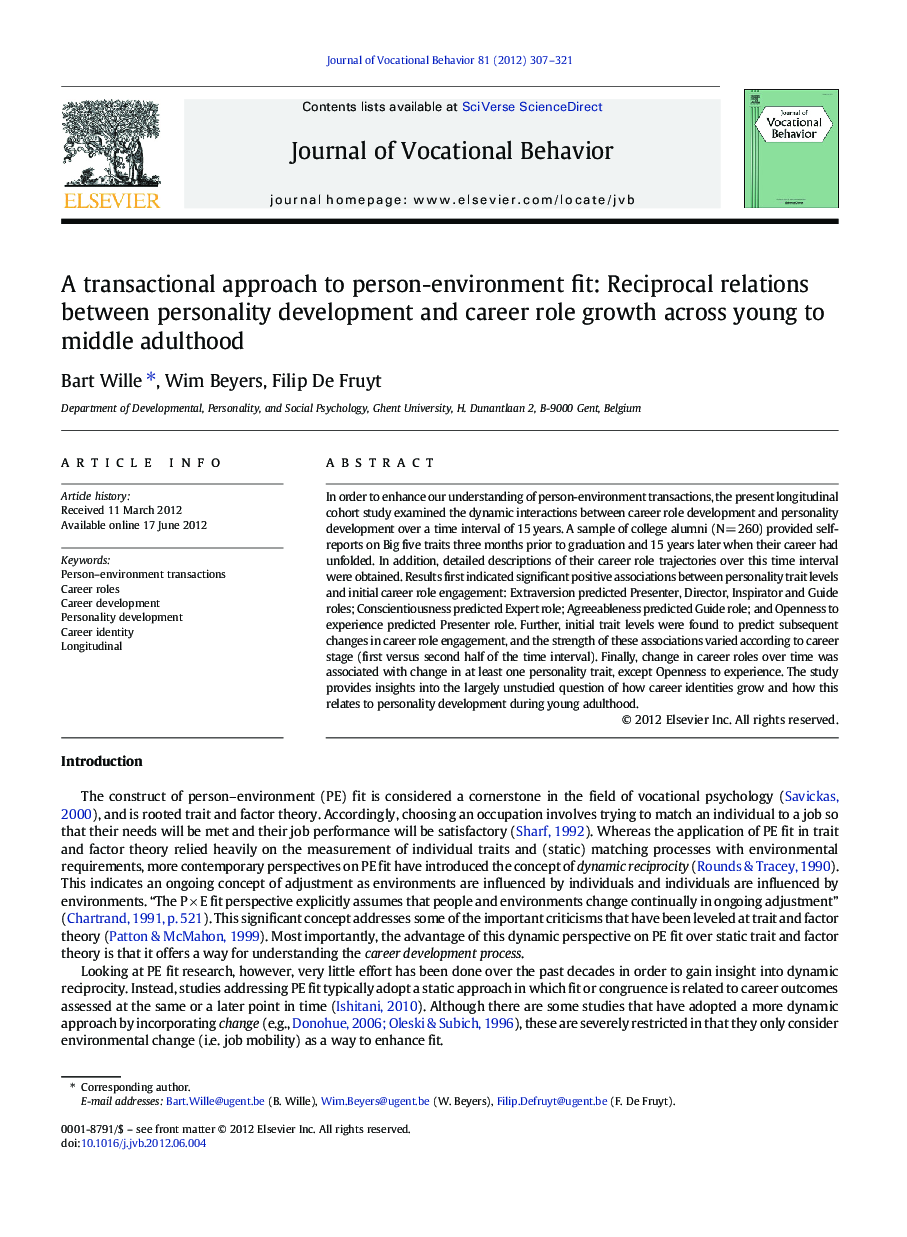| Article ID | Journal | Published Year | Pages | File Type |
|---|---|---|---|---|
| 887025 | Journal of Vocational Behavior | 2012 | 15 Pages |
In order to enhance our understanding of person-environment transactions, the present longitudinal cohort study examined the dynamic interactions between career role development and personality development over a time interval of 15 years. A sample of college alumni (N = 260) provided self-reports on Big five traits three months prior to graduation and 15 years later when their career had unfolded. In addition, detailed descriptions of their career role trajectories over this time interval were obtained. Results first indicated significant positive associations between personality trait levels and initial career role engagement: Extraversion predicted Presenter, Director, Inspirator and Guide roles; Conscientiousness predicted Expert role; Agreeableness predicted Guide role; and Openness to experience predicted Presenter role. Further, initial trait levels were found to predict subsequent changes in career role engagement, and the strength of these associations varied according to career stage (first versus second half of the time interval). Finally, change in career roles over time was associated with change in at least one personality trait, except Openness to experience. The study provides insights into the largely unstudied question of how career identities grow and how this relates to personality development during young adulthood.
► We follow college alumni across the first 15 years of their professional careers. ► We examine the interaction between personality and career development. ► Young adulthood traits are associated with early career role engagement. ► Personality traits influence the pattern of career role change. ► Career role engagement contributes to normative and non-normative trait change.
